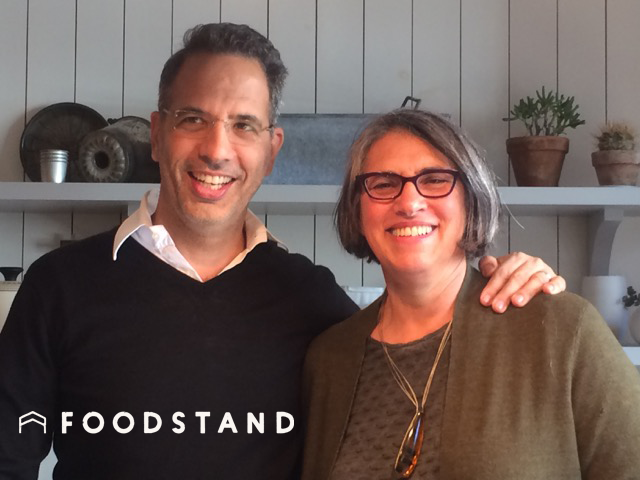
We were introduced to Rebecca Sparks, MS, RD by our very own Noni Vaughn-Pollard, aka @darkchocolatepeanutbutter (you can find her Behind The Plate interview here). In addition to being Noni’s Nutrition Professor at New York University, Rebecca is the Nutrition Consultant for Head Start in New York, a governmental program providing services to low-income children and their families. Considering that last month was National Nutrition Month, we were excited to follow up with Rebecca and share her take on the current situation regarding nutrition across income levels.
Tell us about Head Start.
Head Start is a government program started in the 1960’s to give low-income children a “head start” so they would be just as well prepared for school as more fortunate children. It provides services (including nutrition) and daycare for children 0-5 years old.
How do you define good food?
“Know your farmer, know your food.” Good food is grown without the use of fertilizers, pesticides or herbicides. The less processed the food, the better it is. The more local the food, the better it is. However certain foods cannot be grown locally, such as coffee, citrus fruit, etc. Living in a global world, we can include these in our diet but Fair Trade Sources are encouraged. It would be an ideal situation if all people could afford to eat good food. Unfortunately with income disparities, that is a big challenge for many people. I recommend families to prepare food at home and eat as many fruits and vegetables in whatever form they can afford. And for all people to eat a variety of foods and a variety of colors in moderation and eat a family meal whenever possible. Most importantly, good food includes enjoyment!
Food issues have not quite made it into the race for President. If you could ask the future President to consider a food issue that needs to be addressed, what would it be?
At present there is a movement in the government to limit access to SNAP benefits by making it a block grant where states can make decisions of eligibility and access. This is a crime. Every American resident should be guaranteed the right to food.
If you had to make (or are making) a food resolution this year, what would it be?
Support new young farmers!
What’s one of your first (and most memorable) interactions with food?
In 3rd grade I gave a report in school on scallops. They looked so good with their beautiful shapes. When I tasted them for the first time, they did not taste the way I thought they would. Now they are one of my favorite foods!
If you could get the general population to change ONE aspect of their eating habits, what would it be?
Cook and eat food at home instead of relying on takeout.
Who is your food inspiration?
Joan Gussow and Yotam Ottolenghi.
Tell us about what you’re working on right now.
I have found that many low-income mothers are still bottle-feeding their children at four years old. Children should be off the bottle and the sippy cup by one year old. To continue bottle feeding can lead to massive tooth decay, ear infections, speech delays, anemia and excess weight. With the increase in developmental delays that we are seeing among low-income children, it is essential that mothers be taught how to feed their children.
Where do you typically grocery shop?
In my garden, at farmers markets, Green Carts, Fairway, Whole Foods, and Essex Market.
March was National Nutrition Month. What’s one good-food aspect of your diet that packs some nutritious punch?
Kombucha
You work with low-income families. What is one thing you would like to see change that could help everyone eat well, regardless of income level?
The biggest challenge that I think low-income people have is the stress of poverty and not knowing if there is enough money to buy food, pay for utilities, and cover health costs. If there was a way to change that by providing a livable minimum wage and empowering people to take charge of their lives, it would open the way for them to think about a better future.
Are there any misconceptions you see surrounding nutrition about which we should be better educated?
I am concerned with trends about foods such as gluten and dairy. Though I recognize there are many people who have intolerances and allergies, I also see a lot of people limiting their intake of these foods because other people say they should. It is more important to listen to your own body to learn how to eat healthfully.
What’s your favorite meal-on-the-go?
Different homemade soups.
What’s always in your fridge?
Kombucha, onions, avocado, garlic, celeriac, carrots, ginger, and parmesan cheese.
WANT TO BE FEATURED ON BEHIND THE PLATE?
DOWNLOAD THE FOODSTAND APP!
Who is one famous person, dead or alive, that you want to share a meal with? And where?
Amanda Cohen—near a farm or garden.
Your good food wish?
To learn how to cook the way Amanda does!
Favorite cuisine?
Mideastern
What’s your favorite indulgent treat?
Smoked salmon
Nutrition is becoming much more popular these days. Is it exciting to see more people become interested in your area of expertise?
Yes it is. I wish that people considered nutrition more for health than just for losing weight.
If you weren’t doing what you’re doing, what would you be doing?
Pottery, gardening, helping others, and traveling.
